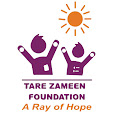Rights of the Divyangjan
In 2015, the Prime Minister in his Mann Ki Baat program stated that the word Divyang should be used to refer to the disabled. The word originally means “one with a divine body” and is to be used in all formal settings to refer to persons with disabilities (PWD). It was supposed to replace other derogatory and insensitive words in the Indian vernacular which were used to refer to PWD.
The Divyangjan are entitled to numerous rights as stated by the Indian state. However, not many know of these rights. The following discusses, in brief, some major rights of the divyangjan.
FUNDAMENTAL RIGHTS
Persons with disabilities are accorded all the fundamental rights of an Indian citizen – the right to freedom, right to equality, right against exploitation, right to freedom of religion, and cultural and educational rights. Article 15 of the Indian constitution prohibits the discrimination of PWD. Such discrimination is punishable in the eyes of law. Article 29 ensures that the disabled are not denied education and Article 45 guarantees their education.
PERSONS WITH DISABILITIES ACT, 1995
The Persons with Disabilities (Equal Opportunities, Protection of Rights, and Full Participation) Act, 1995 is significant because this was one of the first acts to start a discourse on the rights of the divyangjan.
The Persons with Disabilities Act, 1995 makes way for the divyangjan to become independent and self-sufficient.
The Act provides for equal and unhindered job opportunities for the disabled, ensures and strengthens their fundamental rights, and offers relief in case they are not able to earn for themselves. It grants aid, reservations, and other affirmative action in favor of the PWD so that they can participate in society. The Act, in this way, makes way for the divyangjan to become independent and self-sufficient.
In case the rights of the PWD are violated, then they can approach the Chief Commissioner for Persons with Disabilities in the Centre or the Commissioner for Persons with Disabilities in the State for grievance redressal.
MENTAL HEALTH ACTS
Apart from the right to life and personal liberty that is ensured by Article 21 of the Indian constitution, there are several other acts and provisions that ensure the health and safety of PWD.
Mental Health Act, 1987
The Act was passed to give proper guidelines on the treatment of mentally ill persons, as a citizen and as an individual. It was meant to make better provisions for mentally ill persons “with respect to their property and affairs and for matters connected therewith or incidental thereto.”
This Act was superseded by the Mental Health Care Act that was passed in 2017.
Rehabilitation Council of India Act, 1992
This Act was passed by the parliament to monitor and regulate the training and behavior of rehabilitation professionals and to standardize programs, courses, and institutions for rehabilitation.
Not all legal provisions for PWD are properly utilized
The National Trust for Welfare of Persons with Autism, Cerebral Palsy, Mental Retardation, and Multiple Disabilities Act, 1999
The Act was introduced to ensure the rights and existence of persons with autism, cerebral palsy, mental retardation, and multiple disabilities. It gives provisions to combat their neglect and guarantee an adequate standard of living.
Unfortunately, not all of these provisions are well known or properly utilized. Though they exist, they fail to reach the layman and are completely foreign to the already underprivileged.






0 Comments